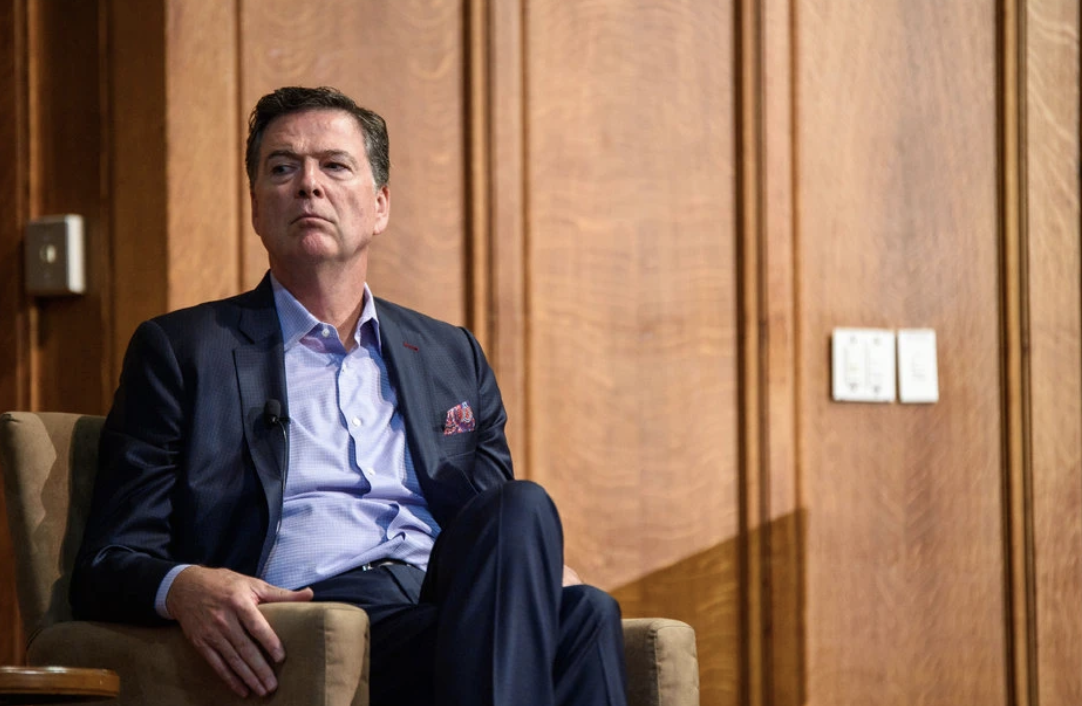DoJ Begins Second Probe Into Comey’s History Of Leaking Classified Intel
The New York Times just published a bombshell report that’s faintly reminiscent of the scoops that the Liberal paper of record used to publish during the spring and summer of 2017, when the Mueller probe was in its infancy.
Except this time, instead of the the leak focusing on alleged wrongdoing by President Trump and his inner circle, the NYT is focusing on former FBI Director James Comey, who has increasingly been taken to task by the mainstream press in recent months for his botched handling of both the Clinton investigation and the origins of the probe in Russian interference (remember that?).
According to veteran NYT reporter Adam Goldman (a reporter who won a Pulitzer in 2018 for his work bolstering the Russian interference narrative), federal prosecutors have launched an investigation into an earlier incident of leaking by former FBI Director James Comey.
This leak, which involves a classified information about Russian intelligence, allegedly surfaced in the Washington Post and NYT some time during 2017.
A report published in September by the DoJ’s inspector general found that the fired FBI Director James Comey leaked sensitive law enforcement material in the Trump-Russia investigation. Doing so set a “dangerous example” for the bureau’s other employees, Inspector General Michael Horowitz wrote. Comey’s former No. 2 man, Andrew McCabe, was also fired for leaking, and is also under investigation.
Whatever this document was (the NYT claims it was also mentioned in a book by James Stewart published last fall), it apparently played a key role in Comey’s decision to cut the DoJ out of his announcement that the FBI wouldn’t be pursuing charges against Hillary Clinton in the email scandal. Furthermore, it was allegedly obtained by Dutch Intelligence operatives, before being handed over to the US. The NYT says the document was “one of the key factors” that drove Comey’s decision to give Hillary a pass.
The latest investigation involves material that Dutch intelligence operatives siphoned off Russian computers and provided to the United States government. The information included a Russian analysis of what appeared to be an email exchange during the 2016 presidential campaign between Representative Debbie Wasserman Schultz, Democrat of Florida who was also the chairwoman of the Democratic National Committee at the time, and Leonard Benardo, an official with the Open Society Foundations, a democracy-promoting organization whose founder, George Soros, has long been a target of the far right.
In the email, Ms. Wasserman Schultz suggested that then-Attorney General Loretta E. Lynch would make sure that Mrs. Clinton would not be prosecuted in the email case. Both Ms. Wasserman Schultz and Mr. Benardo have denied being in contact, suggesting the document was meant to be Russian disinformation.
That document was one of the key factors that drove Mr. Comey to hold a news conference in July 2016 announcing that investigators would recommend no charges against Mrs. Clinton. Typically, senior Justice Department officials would decide how to proceed in such a high-profile case, but Mr. Comey was concerned that if Ms. Lynch played a central role in deciding whether to charge Mrs. Clinton, Russia could leak the email.
Of course, the NYT suggests that the investigation might be politically motivated, but offers no other evidence to support this claim than the “suspicious” timing (per NYT, the DoJ typically doesn’t investigate years-old leaks).
The timing of the investigation could raise questions about whether it was motivated at least in part by politics. Prosecutors and F.B.I. agents typically investigate leaks of classified information around the time they appear in the news media, not years later. And the inquiry is the latest politically sensitive matter undertaken by the United States attorney’s office in Washington, which is also conducting an investigation of Mr. Comey’s former deputy, Andrew G. McCabe, that has been plagued by problems.
Law enforcement officials are scrutinizing at least two news articles about the F.B.I. and Mr. Comey, published in The New York Times and The Washington Post in 2017, that mentioned the Russian government document, according to the people familiar with the investigation. Hackers working for Dutch intelligence officials obtained the document and provided it to the F.B.I., and both its existence and the collection of it were highly classified secrets, the people said.
The document played a key role in Mr. Comey’s decision to sideline the Justice Department and announce in July 2016 that the F.B.I. would not recommend that Hillary Clinton face charges in her use of a private email server to conduct government business while secretary of state.
It’s believed that the investigation began in recent months, but it’s unclear whether a grand jury has been impaneled, or how many witness have been interviewed.
Comey has already been investigated by federal prosecutors in NY for leaking: He infamously turned over a memo to personal friend Daniel Richman with the explicit intention of getting it to an NYT reporter. That document was later determined to be classified, though prosecutors declined to charge Comey (and instead let the IG handle it).
But what this probe shows is that Comey has a history of leaking that isn’t Trump-specific. The Clinton email investigation began long before Trump secured the Republican nomination.
It could be the straw that finally wrecks whatever is left of Comey’s credibility in the eyes of the liberal press.
Tyler Durden
Thu, 01/16/2020 – 17:55
via ZeroHedge News https://ift.tt/2RqO8rw Tyler Durden
